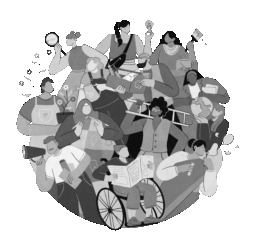Notwithstanding the point that definitions of ‘civil society’ and ‘democracy’ are themselves actively debated, this rapid review defines democracy as ‘liberal democracy’, which goes beyond elections to include liberal components such as equality before the law, individual liberties, rule of law, and independent judiciary and legislature that constrains the executive (Grahn and Lührmann, 2020, p.8). Civil society is defined as “an organizational layer of the polity that lies between the state and private life composed of voluntary associations of people joined together in common purpose” (Coppedge et al. 2016, p.413). Thus, this rapid review seeks to find out what evidence is there on the relationship between civil society and democratic freedoms? The overall sense from the vast array of literature that looks at the relationship between civil society and democratic freedoms is that civil society is important for democracy, but there is no “automatic flow” from one to the other. Rather, the relationship is contingent on the nature of civil society, in addition to other dynamic, context-specific factors. Most of the evidence found during this rapid review was in studies that break down this broad topic into smaller sub-questions. They tended to be case studies that look at specific elements of ‘democratic freedoms’ (e.g., human rights, or anti-corruption), focus on specific countries, or were related to specific mechanisms (e.g., collective action) or processes (e.g., democratic regression). Each of these sub-topics is itself a large and contested area of research. According to some scholars, these case studies are overwhelmingly positive about civil society’s relationship to liberal democratic norms and practices. Some studies show that democratic regression occurs where the demands of a highly mobilised civil society cannot be effectively channelled by the party system or occur in contexts characterised by ethnic and regional differences or socio-economic inequalities.
